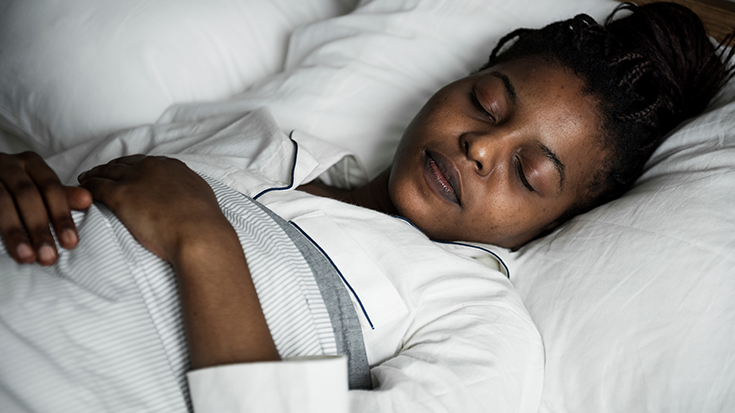
Sleep testing used to be based mainly in hospitals, but these days freestanding centers abound. Are there still opportunities in the hospital-based setting?
RTs who manage these centers believe the future is bright.
An exciting field
“Sleep medicine is an exciting field, with many opportunities,” said Jay Shedd, BBA, RRT, RRT-NPS, director of the RT department at Atrium Health Floyd in Rome, GA, and its Cherokee Sleep Disorders Labs. He believes RTs willing to expand their scope of practice and extend their knowledge base into sleep will be positioning themselves for success.
Pam Gordon, MHA, RRT, RRT-ACCS, RPSGT, CCSH, agrees. Now clinical manager of the Sleep & Neurodiagnostics Center at Lowell General Hospital in Lowell, MA, she moved into sleep years ago after learning more about it from a friend and found that it worked well with her lifestyle at the time.
“I was working evenings and every other weekend, so it was a chance to do 12-hour shifts and no weekends,” she explained. She started with three nights a week and worked her way up from there, becoming the first supervisor of the sleep lab and then supervisor of both the RT department and sleep.
“After a few years, we merged with another hospital across town, and I had sleep credentials, and my counterpart there did not,” she said. “I took over sleep, we added an MD and started a clinic, and my position was upgraded to manager.”
With retirement approaching, David Rodriguez, BA, RRT, recently stepped down as the cardiopulmonary department director at Hamilton Hospital in Hamilton, TX. Instead, he moved into the position of sleep lab coordinator, where he handles everything from scheduling in-lab and home tests to conducting P&P reviews with the sleep physician, to sleep center marketing and more.
“I believe the future is favorable for hospital-based sleep centers, as administration views it as a profitable service line when marketed appropriately,” he said.
Plan to earn a sleep credential
All three of these sleep lab managers emphasize the importance of earning a sleep credential to those interested in working in this setting.
At Shedd’s hospital, the four RTs and other clinicians working in the sleep labs must earn American Academy of Sleep Medicine credentials.
Gordon oversees four other RTs and two additional staff members in her center, all holding the RPSGT credential. Therapists who join the team must acquire the credential within a year of hire.
All of the clinicians in Rodriguez’s lab are RPSGTs. However, he believes the NBRC’s Sleep Disorders Specialist (SDS) credential would also be of value to any therapist seeking a sleep position.
Services are shifting
Therapists who make the move to sleep should also realize that the field is quickly adapting to new technology that has broadened the places where sleep testing can occur. Specifically, Gordon and Shedd say their labs have significantly shifted from in-lab testing to home tests over the past few years.
“Some are patient preference due to the pandemic, and others are due to payer sources,” said Shedd.
Gordon believes the trend will continue as more accurate home testing equipment becomes available. In addition, with less testing taking place in the lab itself, she believes labs will take on other responsibilities.
“As the technology advances, I can see a shift to more involvement in compliance and maintenance,” she said, noting that alternatives to CPAP are also advancing that will bring changes to the hospital-based lab. “It will be interesting to see if new medications being developed to treat sleep apnea work as well.”
Rodriguez says therapists at his hospital get a great chance to see if sleep is something they might like to pursue through their role in screening patients for sleep disorders and working with sleep physicians.
“RTs at the hospital evaluate COPD and heart failure patients for OSA via the STOPBANG questionnaire as part of initial patient assessments and coordinate with physicians for sleep studies for high-risk OSA patients,” he said.
He believes RTs interested in sleep would do well to cross-train into other outpatient hospital-based services, such as EEGs and cardiac and pulmonary rehabilitation, to get an idea of what it’s like to work in this type of hospital department as well.
Start here
Like everything else in health care, sleep medicine is constantly evolving, and respiratory therapists interested in going along for the ride are encouraged to investigate the area and see if it is for them. An excellent place to start might just be your own hospital-based sleep lab.





